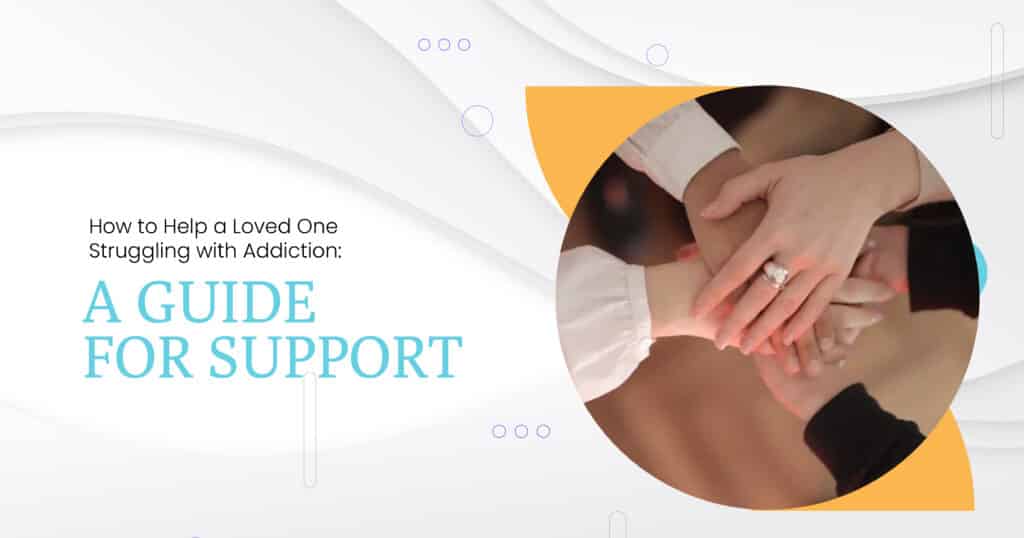Seeing someone you care about grapple with addiction can be heartbreaking. It’s a complex disease that affects not only the addict but also their loved ones. You might feel helpless, unsure of how to offer the best support. But know this: you can make a significant difference in their journey towards recovery.
This guide equips you with the knowledge and tools to navigate this challenging situation. We’ll explore:
- Understanding addiction: Dispelling myths and recognizing the signs
- Offering support: Effective communication and setting boundaries
- Encouraging treatment: Finding the right resources and navigating the process
- Taking care of yourself: Prioritizing your well-being for long-term support
Understanding Addiction: Separating Fact from Fiction
Addiction is a chronic brain disease characterized by compulsive substance use despite harmful consequences. It disrupts the brain’s reward system, making it difficult to control urges and prioritize the substance over healthy activities.
Here are some common misconceptions about addiction:
- Myth: Addiction is a lack of willpower.
- Fact: Addiction is a complex disease with biological, psychological, and social factors at play.
- Myth: People with addictions can easily quit if they want to.
- Fact: Withdrawal symptoms and strong cravings make quitting challenging.
- Myth: Only teenagers or weak-willed people get addicted.
- Fact: Addiction can affect anyone regardless of age, socioeconomic status, or background.
By recognizing these myths, you can approach the situation with empathy and understanding, fostering a supportive environment for healing.
Recognizing the Signs of Addiction
Early intervention is crucial for successful recovery. Here are some signs that might indicate a loved one is struggling with addiction:
- Changes in behavior: Increased secrecy, withdrawal from social activities, neglecting responsibilities.
- Physical changes: Bloodshot eyes, fatigue, weight fluctuations, changes in sleep patterns.
- Mood swings: Irritability, anxiety, depression, sudden outbursts of anger.
- Financial problems: Borrowing money, unexplained financial strains.
- Changes in personal hygiene: Deteriorating appearance, neglecting self-care.
Offering Support: Communication and Boundaries
Communicating with a loved one struggling with addiction requires a delicate balance between expressing concern and enabling their behavior. Here’s how to approach a conversation:
- Choose the right time and place: Be calm and avoid accusatory language.
- Focus on “I” statements: Express your feelings (“I’m worried about your health”) instead of blaming them.
- Listen actively: Emphasize that you care and want to help.
- Set boundaries: Make it clear that you won’t tolerate enabling behaviors like covering for them or providing money for substances.
Encouraging Treatment: Finding the Right Resources
Treatment is crucial for overcoming addiction. Here’s how to support your loved one on this path:
- Research treatment options: Explore inpatient/outpatient programs, therapy modalities, and detox centers. Consider factors like your loved one’s needs, insurance coverage, and location.
- Help them find a therapist: Look for a therapist specializing in addiction treatment, ideally with experience treating the specific substance they misuse.
- Offer to accompany them to appointments: Be a source of strength during this process.
- Support groups: Encourage participation in support groups like Alcoholics Anonymous (AA) or Narcotics Anonymous (NA). These groups provide invaluable peer support and connection.
Remember: You cannot force someone into treatment. The decision ultimately rests with them. However, by offering your support and guidance, you can significantly increase the chances of them seeking help.
Taking Care of Yourself: Prioritizing Your Well-Being
Supporting someone with addiction can be emotionally draining. Here are ways to prioritize your well-being:
- Seek support for yourself: Consider joining a support group for families of addicts. Sharing experiences and receiving guidance from others who understand can be invaluable.
- Practice self-care: Prioritize activities that recharge you, such as exercise, meditation, or spending time with loved ones.
- Set boundaries for yourself: It’s okay to limit contact with your loved one if their behavior is affecting your mental health.
In today’s fast-paced world, prioritizing self-care and well-being has become more important than ever. Amidst the demands of work, relationships, and daily responsibilities, it’s easy to overlook our own needs, leading to burnout and diminished mental and physical health. However, carving out time for self-care is essential for maintaining balance and resilience in the face of life’s challenges. This can involve simple practices like getting enough sleep, eating nourishing foods, staying physically active, and engaging in activities that bring joy and relaxation. Additionally, setting boundaries, practicing mindfulness, and seeking support from loved ones or professionals can significantly contribute to overall well-being. Adrian Dubiel, CEO of the Coastal Detox of Southern California, emphasizes the importance of self-care as a fundamental aspect of recovery from addiction. By prioritizing self-care, individuals can cultivate a strong foundation for their mental, emotional, and spiritual health, ultimately leading to a more fulfilling and sustainable life. Dubiel’s approach underscores the significance of self-compassion and self-awareness in fostering long-term wellness and resilience.









